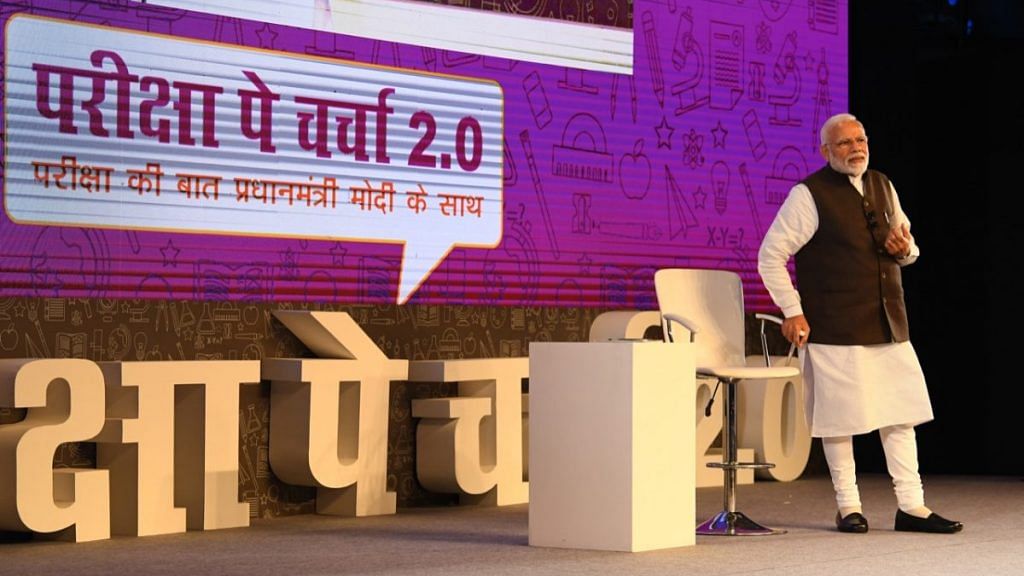Nearly 30 lakh students on the verge of adulthood are learning an important lesson in India today: don’t let a government become too powerful. Their teacher is the Narendra Modi government.
When a government becomes too powerful, it stops listening to the people. It looks the other way.
Aspiring to become doctors and engineers through two of the biggest, toughest entrance exams anywhere in the world — NEET and JEE — these students are astounded today to see that the Modi government doesn’t even want to have a dialogue with them. It’s my way or highway. Whether you take the exam this year or next year, the JEE-NEET 2020 will not be further postponed.
If you can’t travel hundreds of kilometres because the trains are not running, it’s your problem. If the highways are flooded, it is your problem. If you return home with Covid-19 and infect elderly parents, it is your problem. The true meaning of ‘Aatmanirbhar Bharat’ (self-reliant India) is to not look at the government for solutions to your problems. It means to face those problems — do or die, swim or drown.
The Modi government’s contention is that a year can’t be wasted. But surely, the exam could be postponed by a few weeks? Let the trains start, let the flood waters clear out? Let Covid peak out in the Hindi heartland?
It is not as if nothing has been postponed due to Covid. As early as March, Rajya Sabha elections were being postponed. Remember how Uddhav Thackeray had to personally call up the prime minister to have an MLC election conducted in time so he could retain the chief minister’s chair in Maharashtra? BJP ally Nitish Kumar in Bihar postponed even his ‘virtual rally’ due to Covid.
The Census exercise and Home Minister Amit Shah’s favourite National Population Register (NPR) have been postponed indefinitely. Panchayat elections in a few states have been deferred too. The monsoon session of Parliament is usually held from mid-July to mid-August but will now take place between 14 September and 1 October in a truncated manner.
Also read: My cousin Vikram hanged himself because of JEE pressure. September dates made it worse
Do they know what a pandemic is?
But when it comes to entrance exams, the Modi government isn’t willing to postpone them any more. The Supreme Court heard the case for a few minutes and then dismissed it. Life must go on, ruled Justice Arun Mishra. He did not realise the irony that he himself was hearing cases over video conference and not in a courtroom for fear of Covid. Moreover, he has declined to receive a farewell upon his retirement due to Covid. If 28 lakh students travelling long distances to take exams in crowded centres does not pose a Covid risk, why can’t court hearings be held as usual?
There are clearly two sets of rules here. One for the public and one for the people in power. The Home Minister goes to a fancy private hospital for his Covid treatment while poor and middle class students wonder how they will arrange a few lakh rupees to get their parents treated for Covid if they catch the disease at the exam centres.
This fear of students is being considered unreasonable. We are being told that India will suddenly have no doctors and no engineers if the exam isn’t held on time, as if the current doctors and engineers will all disappear.
But is it really unreasonable to think one could get Covid in a closed room in a country that now officially has the largest number of Covid cases per day anywhere in the world? Is it unreasonable to fear for one’s health and life, and of one’s family members?
Also read: Modi’s underrated strategy of neutralising criticism helps him retain the Teflon coating
Absolute power corrupts absolutely
The Modi government does not want to find a middle ground here. It has made up its mind and if the students don’t like it, they can be ignored. Narendra Modi, who targets first-time voters with his platitudes on exam stress before every election, didn’t say a word about these aspiring doctors and engineers in his ‘Mann Ki Baat’ radio programme. Instead, he discussed dogs and toys. Lakhs of students are ‘disliking’ the videos of Mann Ki Baat uploaded on YouTube by the official channels of the BJP as well as the Prime Minister’s Office. The BJP’s famed IT cell is having a hard time pumping up the ‘likes’ in response.
Students have taken to such a novel form of protest because the media, opposition, Parliament, the courts — all those institutions that exercise checks and balances on the executive — today appear to be unable to do so. This is what happens when a government becomes too powerful. This is reminiscent of how the UPA-2 government had become insensitive to public opinion, unable to read the writings on the wall.
UPA-2 was brought down with a public movement, an election, a strong opposition, an activist judiciary, an over-enthusiastic Comptroller and Auditor General (CAG) and last but not the least, an independent media. Today, if the voice of lakhs of students is unable to make the BJP government see reason, it is because only one pillar of the government has become all-powerful, the rest subservient.
This is an education for India’s future professionals: don’t let a government become too powerful. Any government, any party, any ideology. Always let them feel insecure. If the Modi government today feared losing the upcoming Bihar assembly election, for instance, it would have postponed NEET-JEE by now. The pain of nearly 30 lakh students is the pain of all those Indians who don’t feel heard by this government. To make sure their voice is heard, we need to fix our democracy.
The author is contributing editor, ThePrint. Views are personal.
